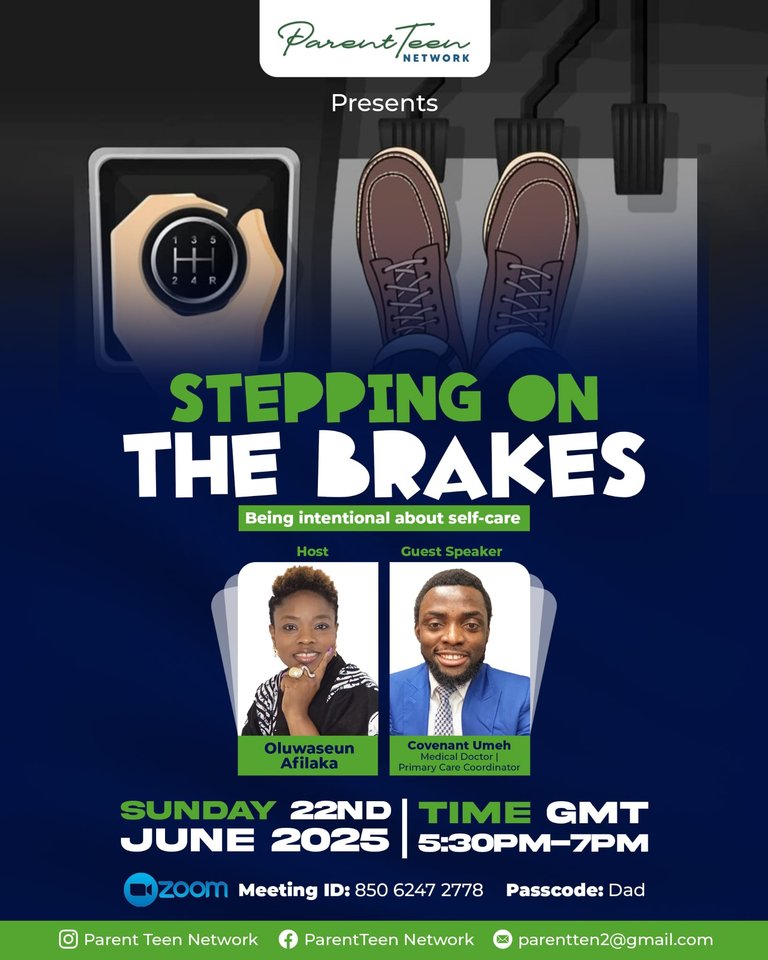Self-Care for Men: A Conversation About Prioritizing Your Health(Highlights from my Father's Day Presentation)

Hey there! I wanted to take a moment to reflect on a presentation I gave today to commemorate Father’s Day. It’s all about the importance of being intentional about self-care—because let’s face it, men often put themselves last on the list when it comes to health. Here’s what I shared, and I hope it speaks to you as much as it did to the folks I talked to today.
The Hard Truth: Men’s Health Stats
You might already know that men have a shorter life expectancy than women, but here's something that might hit harder: Men account for 50% of cardiovascular deaths. And what about mental health? Well, we don’t talk enough about it. Men are 56% more likely to die by suicide compared to women. It’s heartbreaking, isn’t it? And yet, men are often the last to seek help for mental health concerns.
Let’s add burnout to the list. How many of us have pushed ourselves to the edge before finally admitting we're burning out? Men often face burnout, chronic illness, or reduced performance before they even consider self-care. And this has real consequences on our physical and emotional well-being.
What's Holding Men Back?
You might be thinking, “I don’t have time for self-care.” That’s the most common barrier I hear. Lack of time seems to be the biggest excuse. But let’s be real—we prioritize what matters to us. If we’re honest, we find time for the things that we value. So, why not value our health just as much?
When it comes to self-care, it doesn’t have to be some big, time-consuming thing. It can be small, simple actions that make a huge difference.
Self-Care Tools for Men:
Here’s what I suggested in the presentation today. These are things I’ve learned, and I’m sure they can help you too.
Prioritize Sleep – Think of sleep like it’s your job. If you’re not getting enough rest, everything else will start to suffer. Your mood, your energy, your focus—it all depends on how well you sleep.
Be Intentional About Nutrition – You don’t have to eat like a bodybuilder, but pay attention to what you put into your body. Fueling yourself with healthy, nourishing food will pay off in the long run.
Journal or Record Voice Notes – I’m a big fan of journaling. It doesn’t have to be complicated; just a few minutes to write or record your thoughts can be incredibly therapeutic. It helps you process emotions and reflect on your day.
Schedule ‘Me Time’ – Block out time for yourself, and treat it like a meeting you can’t miss. Whether it’s reading, watching your favorite show, or just sitting in silence—do it intentionally.
Set Digital Detox Periods – Constant notifications, endless scrolling—it can drain your mental energy. Set aside periods during your day where you unplug completely.
Consider Therapy or Coaching – Mental health is just as important as physical health. Don’t wait until things spiral out of control. Therapy or coaching can be a game-changer.
Engage in Enjoyable Physical Activity – Physical exercise is a must. But it doesn’t have to be a marathon. Find something you enjoy, even if it’s just walking or dancing around in your living room.
Make Time for Hobbies – Whether it’s music, painting, sports, or something else, make time for activities that bring you joy. Hobbies are essential for relaxation and creativity.
Do Annual Routine Health Checks – Don’t wait for something to go wrong. Schedule regular health checks and screenings. Early detection is key.
Join Community Groups – Find a tribe—whether it’s a religious group, a sports club, or even a local gym. Surrounding yourself with people who care about you can be one of the best ways to improve your mental and emotional health.
Key Takeaways:
I wrapped up the presentation with a couple of key points. I want you to remember these:
Emotions are tools, not enemies – Men are often taught to suppress their emotions, but emotions are powerful guides to our well-being. Learn to understand them and use them to your advantage.
Self-care is not selfish – To be a present father, partner, and friend, you need to take care of yourself. Refueling isn’t selfish; it’s necessary. You can’t pour from an empty cup.
Summary Points to Remember:
Men account for 50% of cardiovascular deaths and have a shorter life expectancy.
Men are less likely to seek help for mental health issues, and the suicide rate is higher than women’s.
The biggest barrier to self-care is lack of time. But we prioritize what matters—make your health a priority.
Self-care tools for men:
Prioritize sleep
Be intentional with nutrition
Journal or record voice notes
Schedule 'me time'
Set digital detox periods
Consider therapy or coaching
Engage in physical activity
Make time for hobbies
Do annual health checks
Join community groups
Emotions are tools, not enemies.
Self-care is essential—not selfish.
Remember, self-care isn’t about indulging in luxuries; it’s about taking the time to care for your body, mind, and soul. You can’t be the best version of yourself without it. Take a step today and start making your well-being a priority.